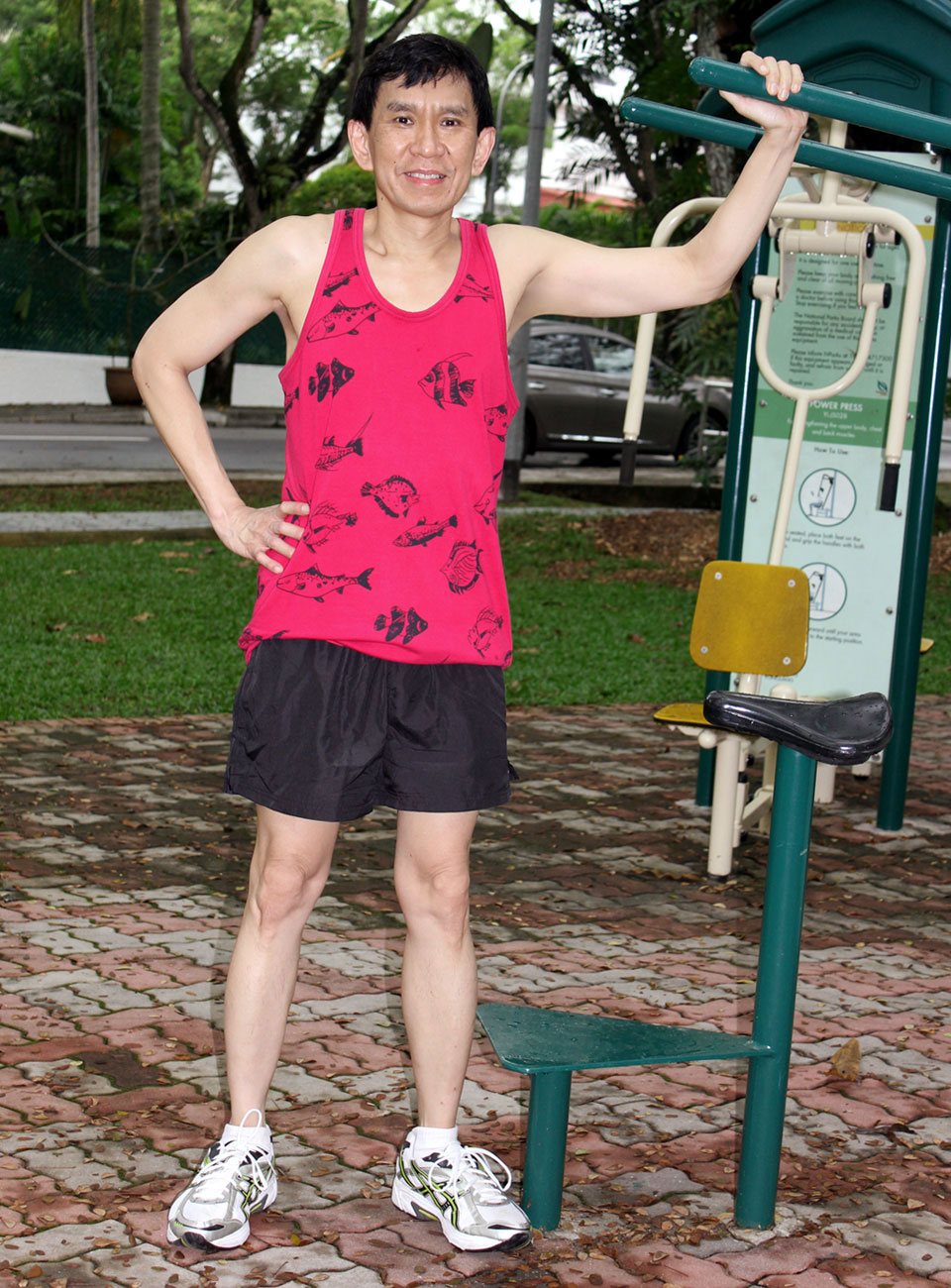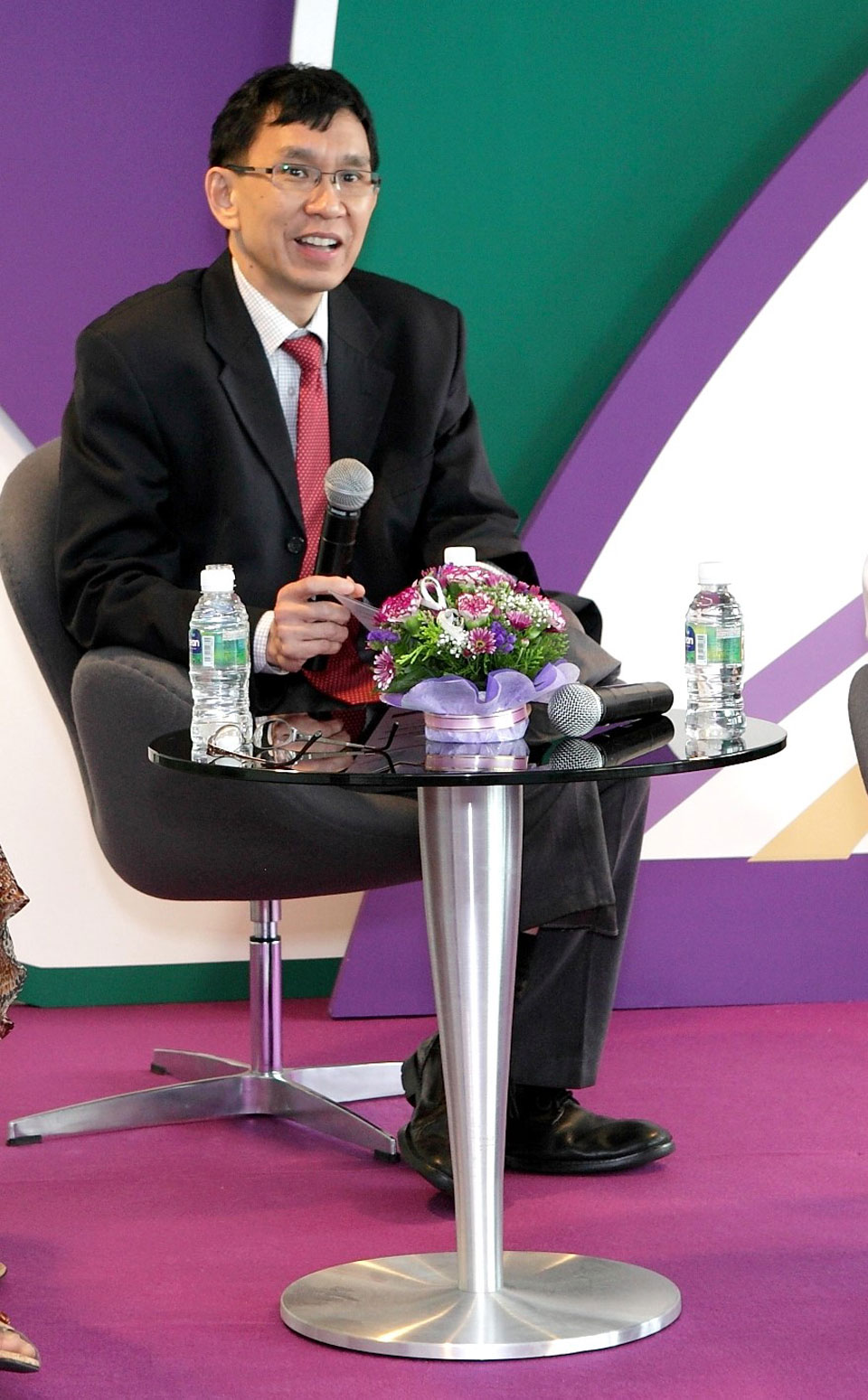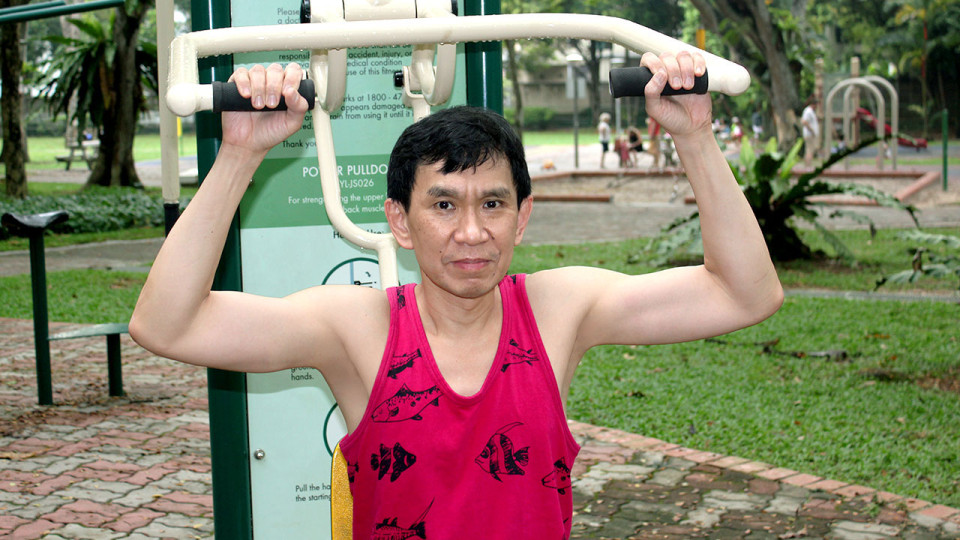Even if the doctor is in when you arrive at Dr. Kevin Tan’s office, don’t expect to find a bowl of candy in his office. Dr. Tan is an endocrinologist specializing in the treatment of diabetes at Mount Elizabeth Medical Center. In his opinion, everyone in Singapore should banish junk food from their diets and substitute exercise. Since Dr. Tan speaks six languages/dialects, he’d be happy to forbid you from indulging in unhealthy eating in every single one of them!
RS: Why did you choose a career in medicine and this specific specialty?
Dr. Tan: I come from a long line of doctors: my father was the first overseas-trained endocrinologist in Singapore. He founded the Diabetic Society of Singapore in 1971, so he’s been called the Father of Diabetes here. Environmental influence definitely plays a part too, so that answers both questions! But in truth the different specialties in medicine and surgery appeal to different temperaments and personalities, so this also has a bearing!
RS: How do you stay healthy?
Dr. Tan: I try to practice what I preach—to eat healthily and moderately and stay physically active. I’ve had to alter my exercise routine due to chronic back problems that prevent me from undertaking high-impact activities. Additionally, I’ve always got time issues; I need more of it! That said, I take power walks after dinner and I also work with free weights.

RS: What causes diabetes?
Dr. Tan: Either the pancreas doesn’t produce enough insulin (a hormone regulating blood sugar) or the body doesn’t effectively use the insulin it produces. But it’s more than just a blood sugar issue—diabetes affects the way fats and proteins are metabolized, which is why some people with diabetes may also have cholesterol, lipid issues and/or hypertension.
RS: How many types of diabetes are there and can you explain the differences?
Dr. Tan: Diabetes is a chronic condition that occurs when either the pancreas does not produce enough insulin, a hormone that regulates blood sugar, or when the body cannot effectively use the insulin it produces. The result is high blood sugar which overflows in the urine resulting in high urine sugar.
Diabetes is not just blood sugar, but affects metabolism of fat and protein. People with diabetes also have cholesterol or lipid problems and sometimes high blood pressure (hypertension). There are three main types of diabetes:
- Type 1 Diabetes: The pancreas is progressively destroyed by an attack by the body’s immune system (autoimmune). This leads to insufficient insulin in the body and the person has to self-give insulin by injections to manage his/her blood sugar level. However, last year, an inhaled insulin powder was approved by the US Food and Drug Administration and is available in some countries.
- Type 2 Diabetes: Results from the body’s ineffective use of insulin. Type 2 diabetes is more prevalent (90% of people with diabetes around the world) and is on the rise due to rising prevalence of obesity brought about by excessive eating and a sedentary lifestyle. This type of diabetes can be managed by diet and lifestyle changes, oral medication and sometimes insulin injections.
- Gestational Diabetes: This is defined as diabetes occurring during pregnancy usually after 6 months (24 weeks) of pregnancy. It reflects the woman’s potential in having diabetes. Most disappear after delivery, only to return in subsequent pregnancies and in the future. It has repercussions to baby as well, both during pregnancy if the mother’s blood sugar is high and in the baby’s future life. Management of gestational diabetes requires home blood sugar monitoring, meal planning and sometimes insulin injections.
There is no cure for Type 1 diabetes. For people with Type 2 diabetes who are very overweight (e.g. BMI over 30 kg/m2), weight loss surgery can better help their condition. Both types of diabetes are managed through a combination of diet and exercise and medication.
RS: How can running prevent or lower the risk of diabetes?
Dr. Tan: Running and physical activities are excellent ways to control weight which, in turn, helps the body manage insulin more efficiently. Running is great for the heart, lungs and blood circulation. When you stay active, your cells become more reactive to insulin, so everything about your body works more efficiently.
RS: Should a diabetes runner avoid sports nutrition bars, drinks, and supplements that are generally sweet?
Dr. Tan: Yes and no. Exercising helps to regulate blood sugar. If exercise is not prolonged or intense, consuming energy and carbohydrate packed foods can counter-balance the benefits of exercise.
However, prolonged intensive exercise (more than half hour continuously) may lower blood sugars, which falls into the low blood sugar (hypoglycemia) range. It is not uncommon for people with Type 1 and Type 2 diabetes who are participating in marathons, to drink sports drinks and energy bars to supplement their body. The best advice I can give is to consult your doctor who is managing your diabetes to create a suitable diet plan to complement your physical activity.
RS: Would you recommend ultra-marathons to diabetic runners? Is it safe to take on so strenuous a challenge?
Dr. Tan: Yes and no again. There’s no reason a diabetic (Type 1 or 2) can’t engage in ultra-marathons. However, people with poorly-controlled diabetes and associated health complications may not be suitable for extreme activity. There’s no reason not to push limits as long as one’s doctor approves. All runners have to make some adjustments to their schedule and eating habits to stay fit. Doctors can help them plan their exercise regime to make sure that it is suitable to help control and improve their condition. In addition, their medication may need to be adjusted due to these lifestyle changes.
RS: Is someone with cardiovascular disease suitable for vigorous exercise like running?
Dr. Tan: It’s all about moderation. All runners—even healthy ones—should take a gradual, moderate approach to increasing activity. Anyone living with a cardiovascular disease should refrain from jumping into vigorous activities until they build stamina by doing lighter exercises. The best choices are aerobics (e.g. running, swimming and cycling)—around 30 minutes daily. Diabetic runners should listen to their bodies and stop exercising immediately if they experience pain or discomfort.
RS: What other exercises do you recommend in addition to running?
Dr. Tan: I recommend Tai Chi because the slow, smooth body movements are relaxing and help control blood sugar levels, improve vitality, energy and mental health. Yoga helps with flexibility, strength and balance while lowering stress and improving blood glucose levels. Swimming burns calories, decreases stress and it’s easy on the joints. And, of course, I recommend stair climbing and walking on a daily basis.
RS: Can diabetes be prevented?
Dr. Tan: Yes and no, again! Genes play a part in both Type 1 and gestational diabetes, but those who are diagnosed with Type 2 diabetes can prevent or delay symptoms by staying active, managing their weight and eating wisely.
RS: Compared to other societies, are Singaporeans more at risk for diabetes?
Dr.Tan: In Singapore, the prevalence of type 2 diabetes is currently at 12.8-percent of the population and it’s on the rise in both men and women. Age is also a factor; the older we get, the more likely we are to be diagnosed with diabetes. In terms of our national heritage mix, Indians are more susceptible to having diabetes, followed by Malays and Chinese.
RS: Is there a drug-free way to control diabetes?
Dr. Tan: Regular exercise and a healthy diet play crucial roles in keeping blood sugar levels as close to normal as possible, but not all diabetes types can be controlled by diet and exercise, so medication is currently the only way to manage the disease.
RS: Are there new medications to treat diabetes on the horizon?
Dr. Tan: Last year, an inhaled insulin powder was approved by the U.S. Food and Drug Administration as an alternative to injections. A new class of diabetes medication called SGLT-2 inhibitors shows great promise. It processes excess sugar through urine, resulting in a loss of up to 100g of glucose or 400k Cal—that’s the equivalent of walking 10,000 steps a day!
In the past, diabetes tablets could actually work against a person who is trying to lose weight and have the opposite effect. There is now a new class of diabetes medication called SGLT-2 inhibitors that help you pass out excess sugar through your urine and lose up to 100 g of glucose or 400 kCal a day. A recent clinical trial, called EMPA-REG OUTCOME, showed that a diabetes treatment drug was able to reduce cardiovascular risk reduction significantly. More specifically, it reduced cardiovascular deaths by a third, reduced all-cause mortality by 32% and reduced hospitalization for heart failure by 35%. Therefore, diabetics should work with their doctor to keep a look out of new kinds of drugs that can help manage their disease better.
RS: How do you feel about the general health of Singaporeans?
Dr. Tan: A segment of our population is extremely health conscious, but too many find it difficult to make the time to exercise, and that usually correlates with unhealthy eating. Successive National Health surveys detect an upward trend of obesity amongst Singaporeans, even though we are exercising more! Singaporeans are also very knowledgeable about diabetes and its associated conditions, such as cardiovascular disease. However, there are still some misconceptions out there because of the internet.

RS: If you could change one habit of Singaporeans, what would it be?
Dr. Tan: You can guess what I’m about to say without reading further! If I had my way, everyone would stop making excuses for leading busy, hectic lives and put that energy into staying active through regular exercise.
RS: What has been your most satisfying and most painful moments treating diabetics?
Dr. Tan: I’m thrilled when my diabetic patients become motivated and actively take charge of their disease. I’ve been treating some of them for 20 years and I like to think that my care has made a difference because it means that we’re both doing things right. Painful moments almost always come about when a patient develops severe complications associated with diabetes, like kidney failure or blindness. Thankfully, this rarely happens!
Nearly 13-percent of all Singaporeans have diabetes and that number is on the rise. Do you know anyone who has been diagnosed with Type diabetes 2? If they’re not following doctor’s orders, would you encourage them to make lifestyle changes or just let them come to that conclusion on their own?
Dr. Kevin Tan, a diabetologist and endocrinology consultant at Mount Elizabeth Medical Center.




